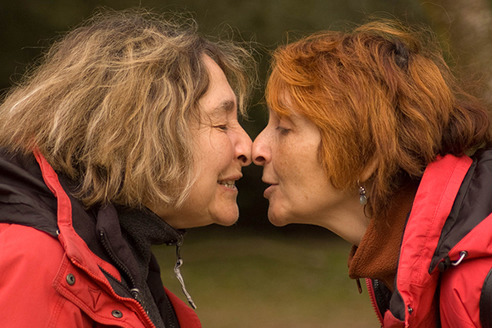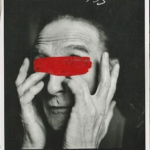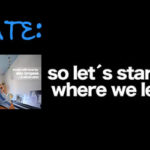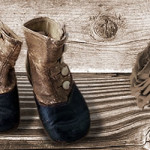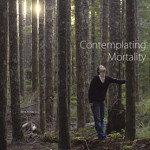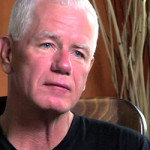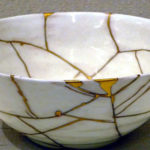Missing the touch of our loved one
Yearning for physical contact with the deceased is not limited to partner loss. After the death of a parent, sibling or child, the desire to touch and be touched by our loved one remains—yet we seldom mention it. Why? And what exactly are we missing, and how can we compensate for it?
Touch has become a touchy subject
Touch is our first form of communication after birth. Without it we would have died. Simply put our body craves touch in the same way it craves food. Unfortunately our culture tends to think of physical touch as something that is done in private and synonymous with sexuality.
Considering the high incidence of sexual abuse, parents wisely advise their children to never allow a stranger to touch them, and never allow anyone to touch them inappropriately. Sadly most parents don’t take the next step and explain how and when it IS acceptable to touch another—platonically.
The idea of “inappropriate touch” extends further into our society via mandated employee sexual harassment classes. The message is clear: don’t wrestle with what is appropriate or inappropriate; if you don’t touch a person, there will be no misunderstanding of intent.
Basically we have become a touch-phobic society and as a result, we mind our manners and hide our desire to touch and be touched by others.
What happens when you are touched?
In essence, touch telegraphs the message that you are connected, that “you are not alone”—a message every person dealing with death needs to receive. In addition, there are physical health benefits:
- When you are touched the stress hormone cortisol drops, and oxytocin, the hormone that signals the sense of trust, increases. Therefore it is not surprising that symptoms of depression often lift once a person starts to regularly touch and be touched by others.
- Scientists at Ohio State University published a study wherein rabbits were fed diets high in cholesterol. Oddly, one group of rabbits did not test high in cholesterol at the end of the study. When the researchers investigated further they found that the technician had cuddled the unaffected group of rabbits when feeding them. As a result, different neuropeptides directed the cholesterol into a completely different metabolic pathway eliminating the rise in cholesterol.
Clearly we are emotionally and physically better off when we have physical contact with others.
What can you do to stay in touch?
- Schedule a manicure, pedicure, massage or Reiki session. To economize on massage, contact your local junior college and ask if they have a massage certification program. If they do, their program depends on the local community making appointments.
- Look into the Happy Feet franchises. In addition to a great foot soak and leg massage, the attendant will massage your back, shoulders, neck and head while sitting fully clothed.
- Go to Whole Foods and get a 20-minute chair massage.
- At the very least, start to touch another’s wrist or forearm during a conversation. Remember, you cannot touch another without being touched yourself.
If your friends are offended by your hand resting for a few seconds on their wrist, arm, shoulder or back, you need to find healthier friends. If you are the one who never allows anyone to touch you – rethink your skin policy.
- In a nutshell make an effort to share caring contact with others, and schedule time to be pampered even if you have to pay for it!
One more thing—consider getting a pet.
I believe pets play a central role in so many of our lives because we feel free to openly touch and be touched by them. The poet Mary Oliver nails the beauty of one’s relationship with an animal in her poem “Little Dog’s Rhapsody in the Night” from her book Dog Songs.
He puts his cheek against mine
and makes small, expressive sounds.
And when I’m awake, or awake enough
he turns upside down, his four paws
in the air
and his eyes dark and fervent.
“Tell me you love me,” he says.
“Tell me again.”
Could there be a sweeter arrangement?
Over and over
he gets to ask.
I get to tell.
Bonus: Free viewing of film Touch: the Forgotten Sense: The link below connects you to the documentary Touch: the Forgotten Sense, which explores the sense of touch in various circumstances, including the blind and deaf learning to hear via touch. It is a fascinating 52 minutes. http://vimeo.com/71964645

